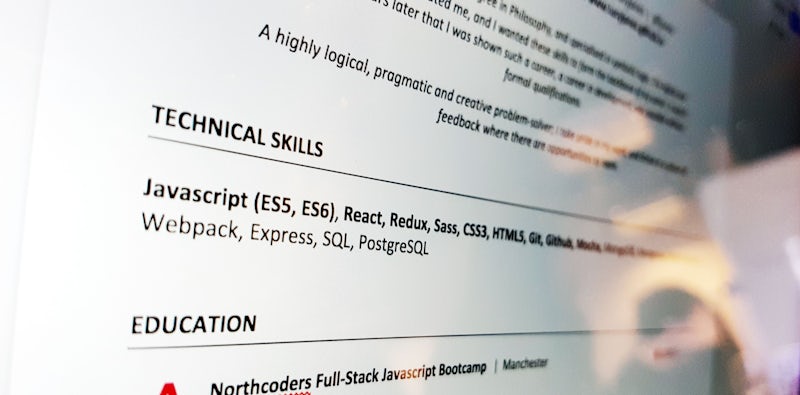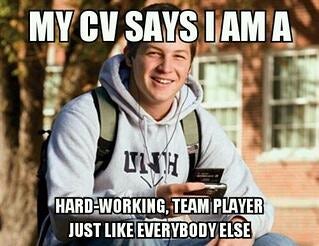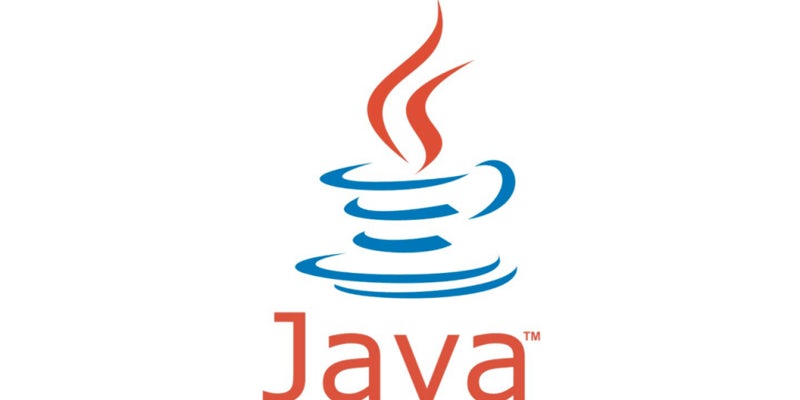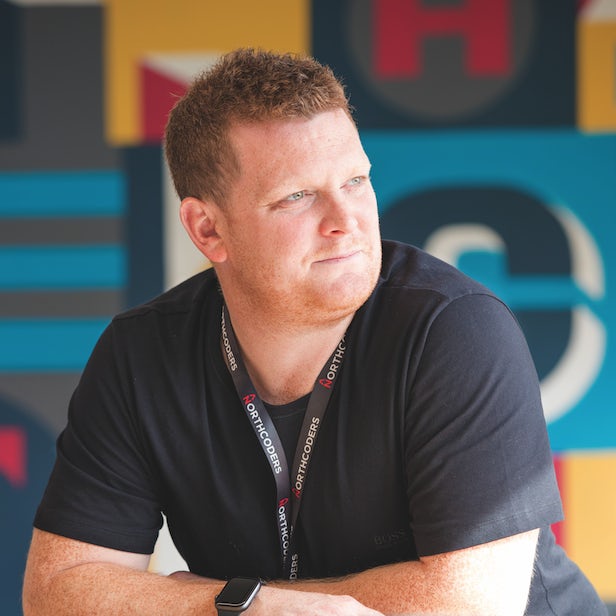Recruitment and Hiring
Writing the Perfect Junior Developer CV

Poor CV? No interview. Great CV? Fast lane to interview. Your CV is your first chance to market yourself, and in many cases, your only chance to make a first impression. Make it count.
In this post, I explain how to write a great Junior Developer CV
What are the best practices?
1. Keep it tidy.
Use clear headings to emphasise the structure. Use the space efficiently, without cramming the content in.
Highlight important keywords with bold or italic typefaces.
2. Keep it concise.
6 seconds = the average time a recruiter will spend reading your CV.
You could expect a hiring manager to take a little longer. But the point stands. You need to make the little time they do spend count.
- 2 sides, maximum. 1 page? Even better!
- Cut the long, rambling paragraphs
- Bullets, bullets, bullets!
- Don't nest the important information inside long sentences or paragraphs
Lay out the figurative red carpet for your reader and spoon-feed them relevant information!
3. Make it targeted.
You are far, far more likely to get an interview if your CV is tailored to the job and company you are submitting it to.
Imagine - you're hiring a Junior Full-Stack JavaScript Developer. You receive two CVs - one from a candidate who mentions PHP far more than they mention JavaScript, and one who gives examples of full-stack JavaScript projects (also mentioning that they know PHP). I know which one I'd put to the top of the list.
4. Write it with flair.
You can still have personality on your CV! It's ok to be bold and confident, but don't be arrogant. Take pride in your achievements!
5. Make it keyword friendly.
Are you an aspiring Java developer? make sure you've mentioned Java at least 3-4 times throughout your CV! Recruiters and hiring managers will clearly see it's a key skill, and any machine that reads your CV will rank you higher.
How should I structure my CV?
1. Personal Details.
Usually, you'll include your first and last name, number, email, address and Github. You could include your LinkedIn and Twitter if it's appropriate.
Make sure your Github is cleaned up - it's worth paying a few pennies a month to keep any repositories you want to hide private.
Don't include your middle name. And whilst common in Europe, including a date of birth or a photograph is frowned upon in Britain as it could contravene equal opportunity legislation. Including any of these details can also open you up to identity theft!
2. Personal Profile?
No personal profile is better than an average one! Unless you have something to say that will knock the reader out of the park, leave this out. And please don't write "I work well as an individual or as part of a team"..!

3. Technical Skills.
List your core skills.
Avoid separating skills into 'Expert/Some Knowledge' - you are a budding Junior Developer. From an employer's perspective, you're probably not an expert in anything (yet!).
Don't write anything down that might catch you out at interview. You need to be able to demonstrate you're at least somewhat knowledgeable about that particular langauge, framework, library, database or whatever it might be. If you say you know SQL, but can't tell them how you'd update a record, you'll be in trouble!
Be careful with using a table to display your skills. Sometimes machines will read your CV rather than humans - and a lot of recruitment software can't read tables!
4. Education? Relevant Experience? Projects?
The most important parts of your CV should be in the first half page. It's great for your potential Node employer that you've used Node, but if they won't find out until Page 2, they've just gone down a whole page without finding what they wanted.
So what's the most relevant part? Your education, or your recent job? Or perhaps you've worked on some impressive code projects? That is the next section of your CV. It can be helpful to break your professional experience down into relevant experience and other experience - if it fits your situation. If you've just graduated from Coding Bootcamp, you should put that first alongside your projects.
When describing your jobs, use action words. Organised. Managed. Negotiated. Planned. But avoid the 'buzzwords' (please don't say 'highly-motivated'..!) Instead, prove what you have achieved by giving data, hard facts, wherever possible. "Achieved 112% of my sales target". "Secured a grant increase of 30%". Similarly, don't be coy; be proud! If you've managed a team, don't just say "managed a team of inside salespeople", say "managed a team of 8 inside salespeople with a combined quota of £140,000".
The world understands that you don't have much technical experience. Don't fake it! It's ok to be inexperienced, and you should NEVER lie on a CV.
No matter what the experience, you should try and relate it to the job. For example, successful programmers are good problem-solvers and good communicators. In your previous work, when have you demonstrated these skills?
What coding projects have you worked on in your spare time? Have you built a website, a bot, a web scraper, or contributed to open source? Put these in a 'Projects' section! Consider including links to any web pages and Github.
6. Volunteering / Extra-curricular Activities / Certifications?
You could combine this with your 'Other Experience' if it makes sense, depending on what you've been up to.
7. Additional Information
Many employers will want to see your flair in your personal life. What do you enjoy? What are your hobbies? Avoid mentioning any passive hobbies such as watching TV (and please don't write 'socialising'..!)
Also mention driving ("Full, clean driving licence"), your right to work and any languages you speak.
8. References
There's no need to write your references on your CV unless specifically requested to do so. You can just write "References available upon request".
There's no such thing as cookie-cutter CV perfection
What constitutes a 'perfect' CV for you depends on your writing style, your experience and the job you're applying for.
But follow these guidelines and you will be one big step closer to your first Junior Developer job!
Are you looking to find work as a software engineer or web developer? We can help you get the skills you need. Check out The Developer Pathway here!

Ruth Ng
Head of Sales & Marketing




